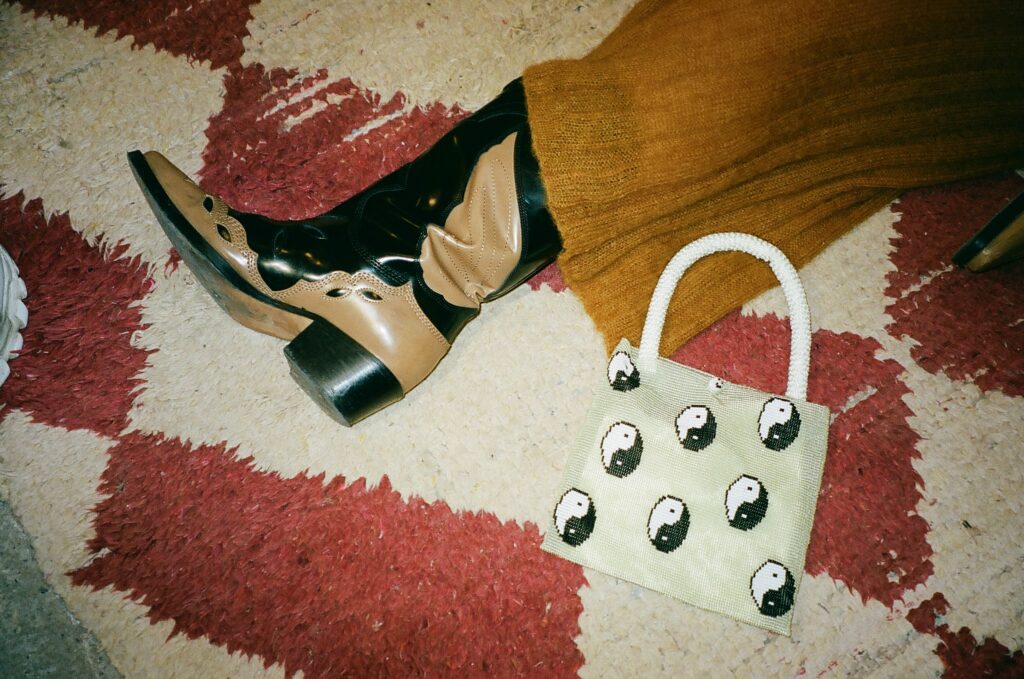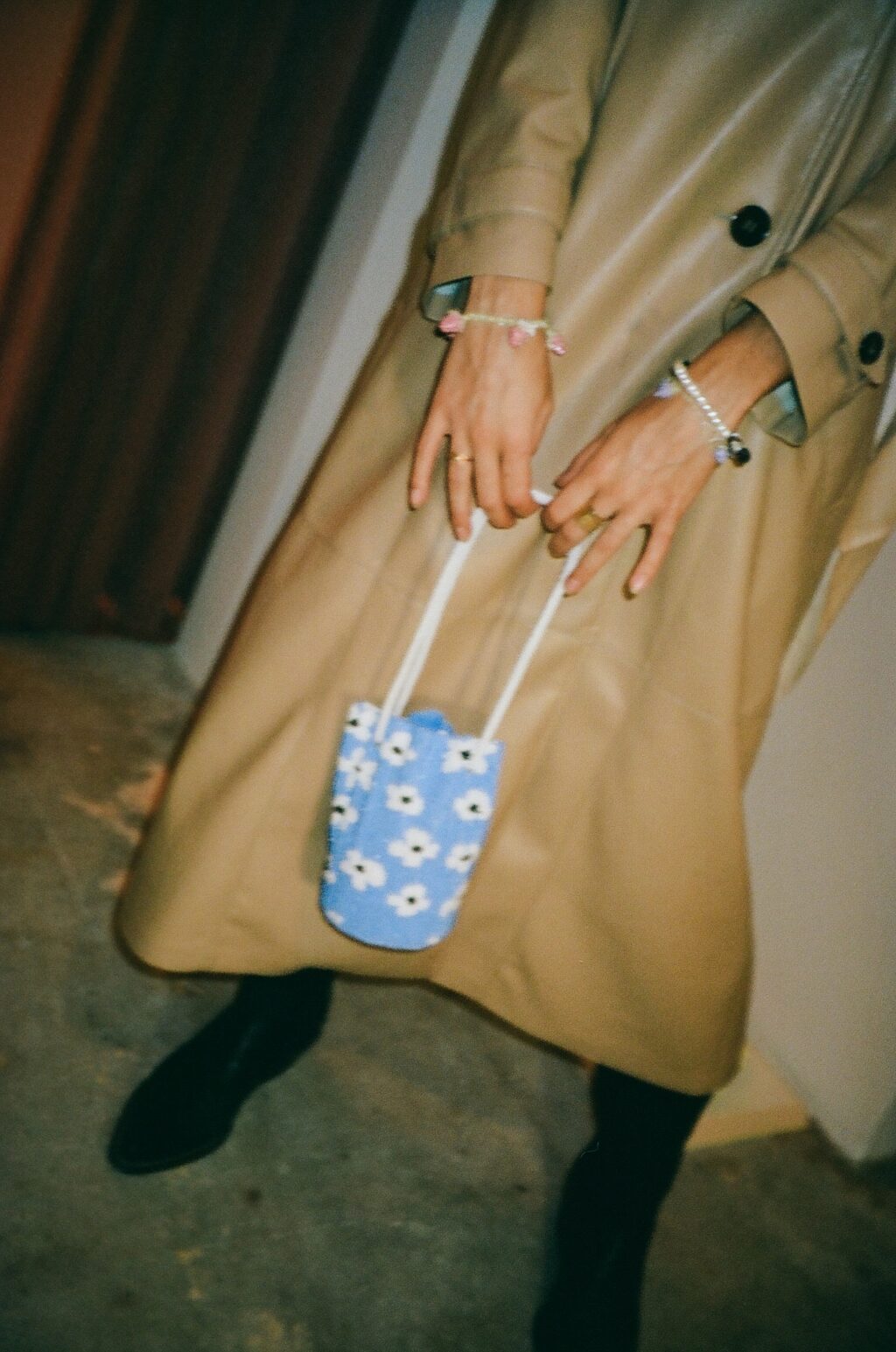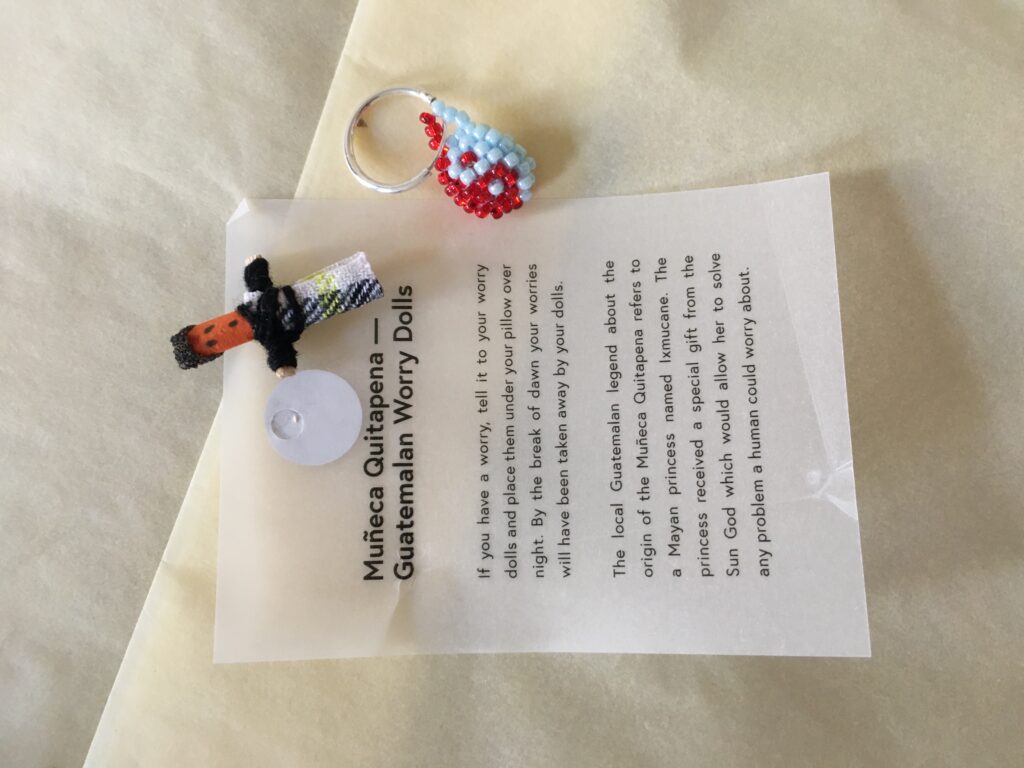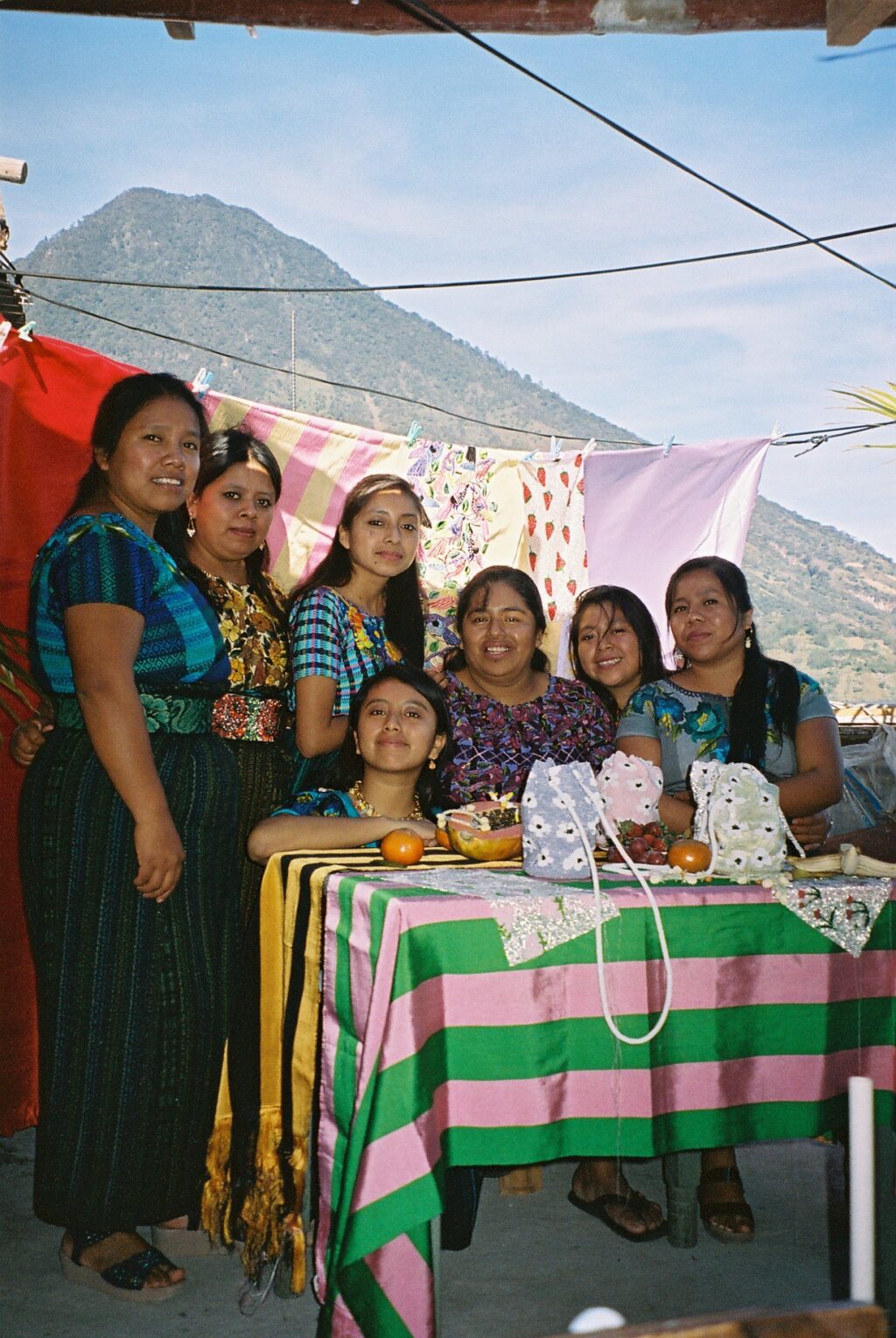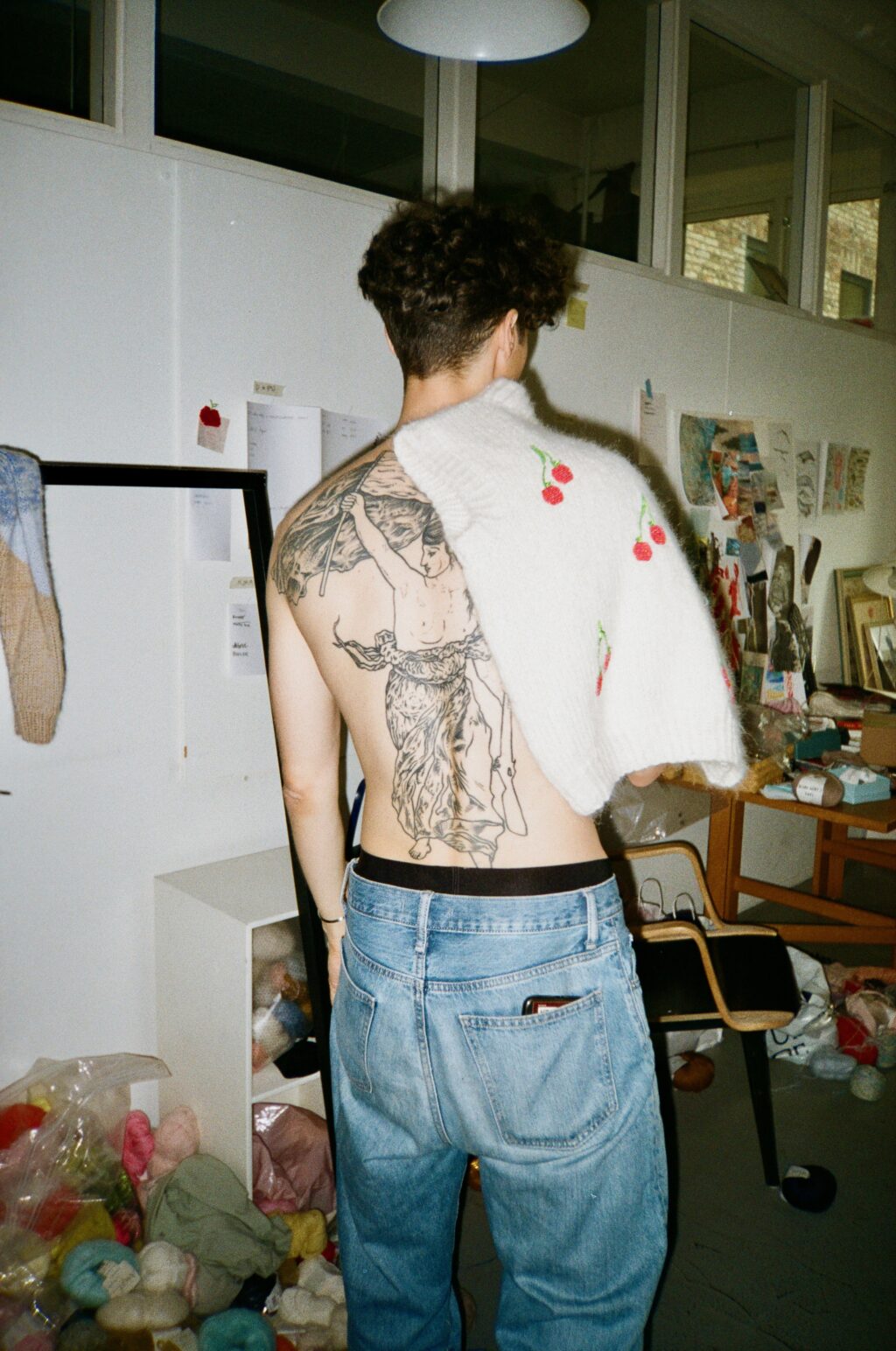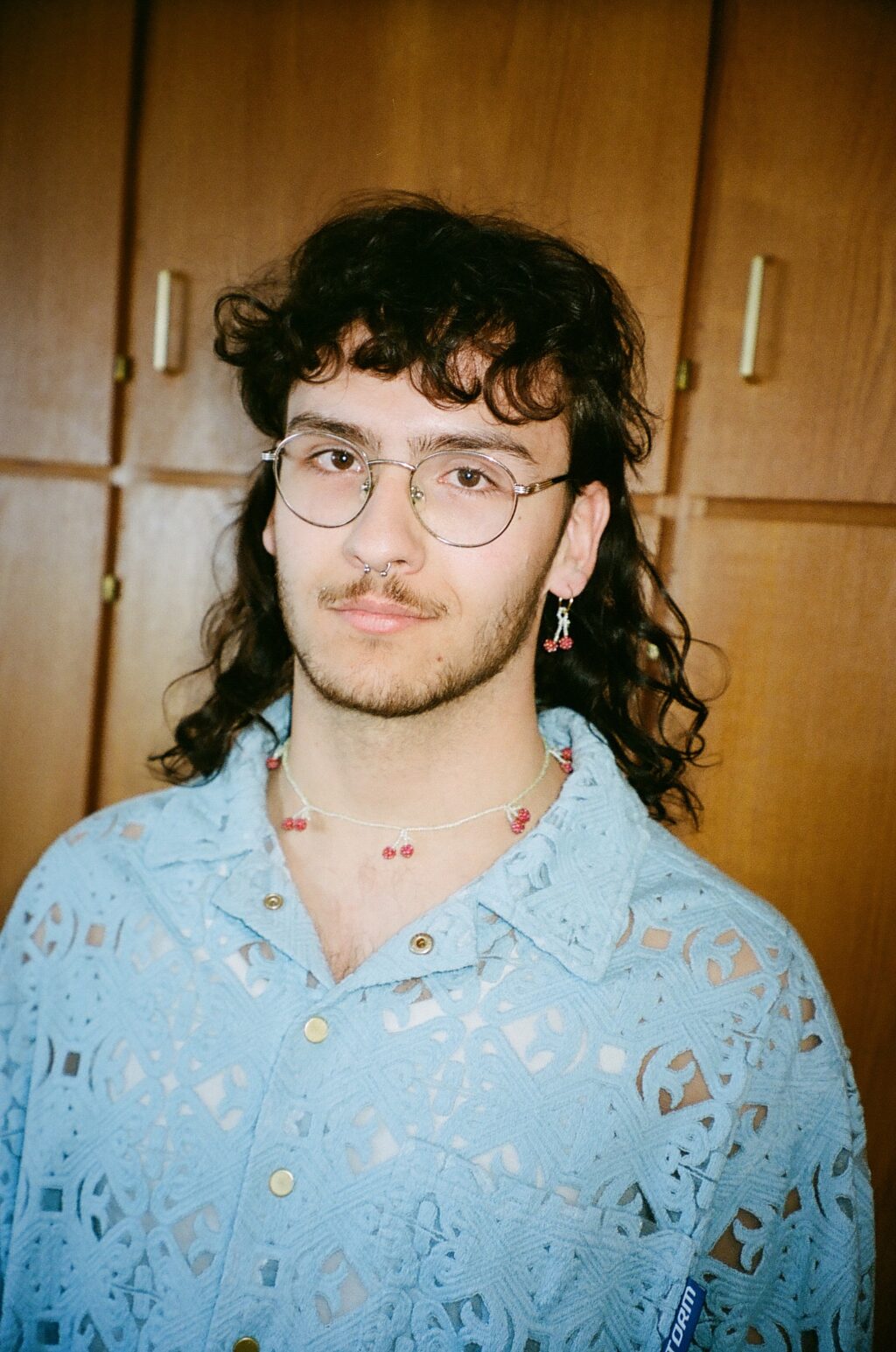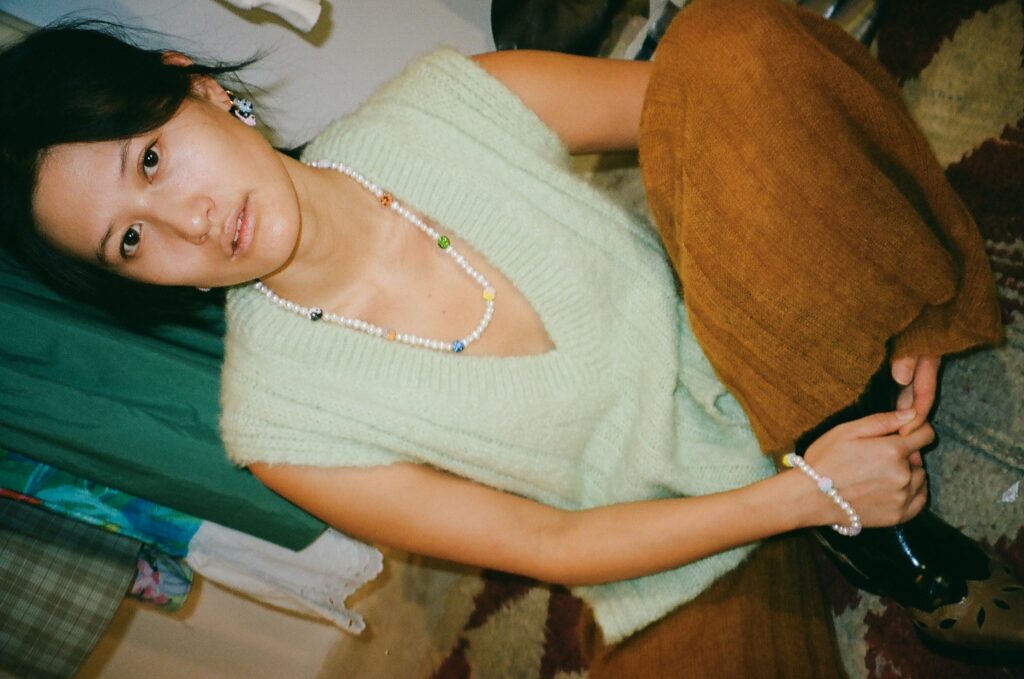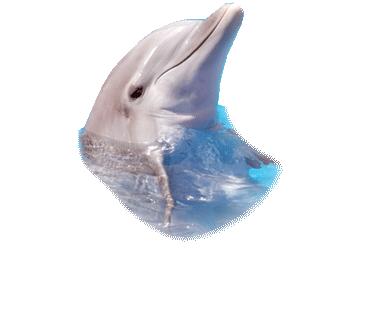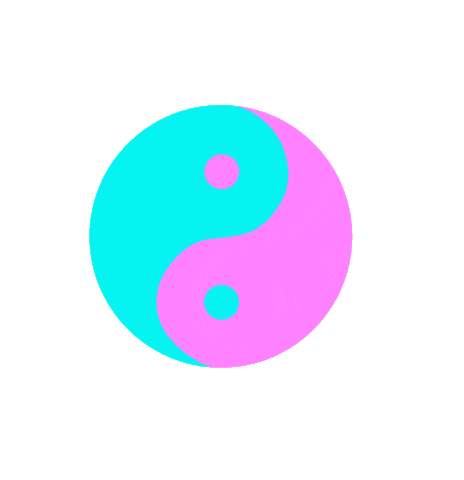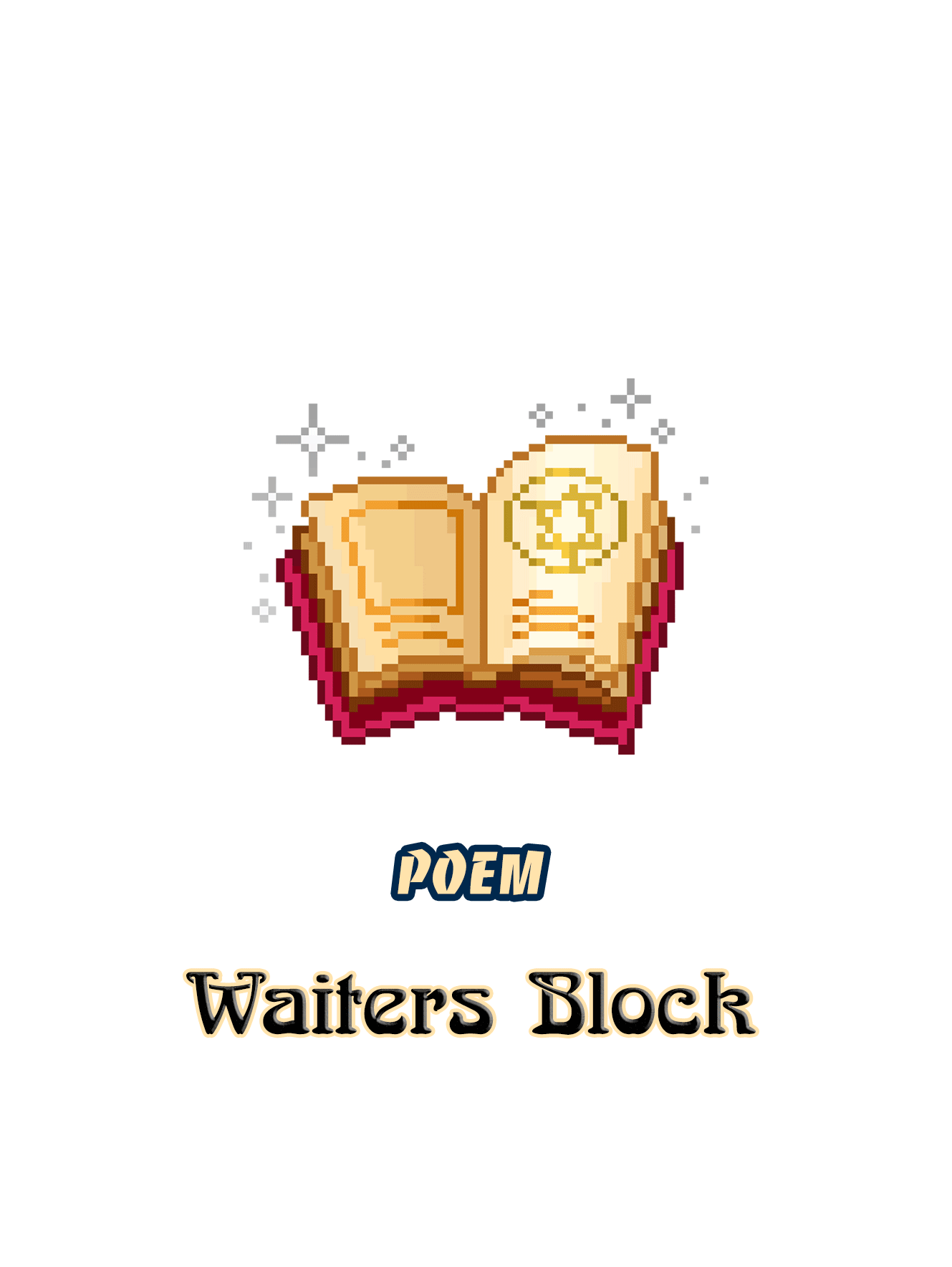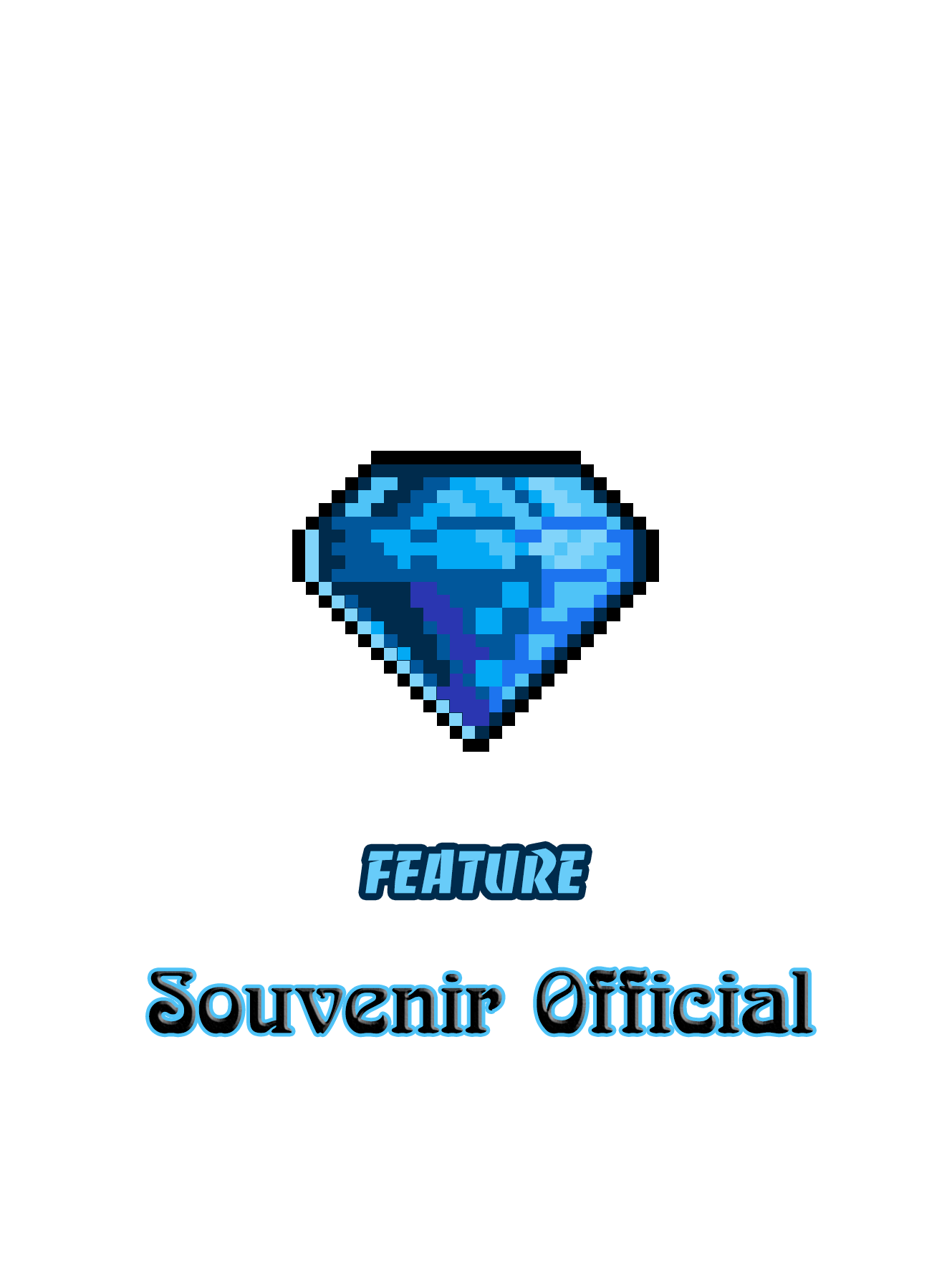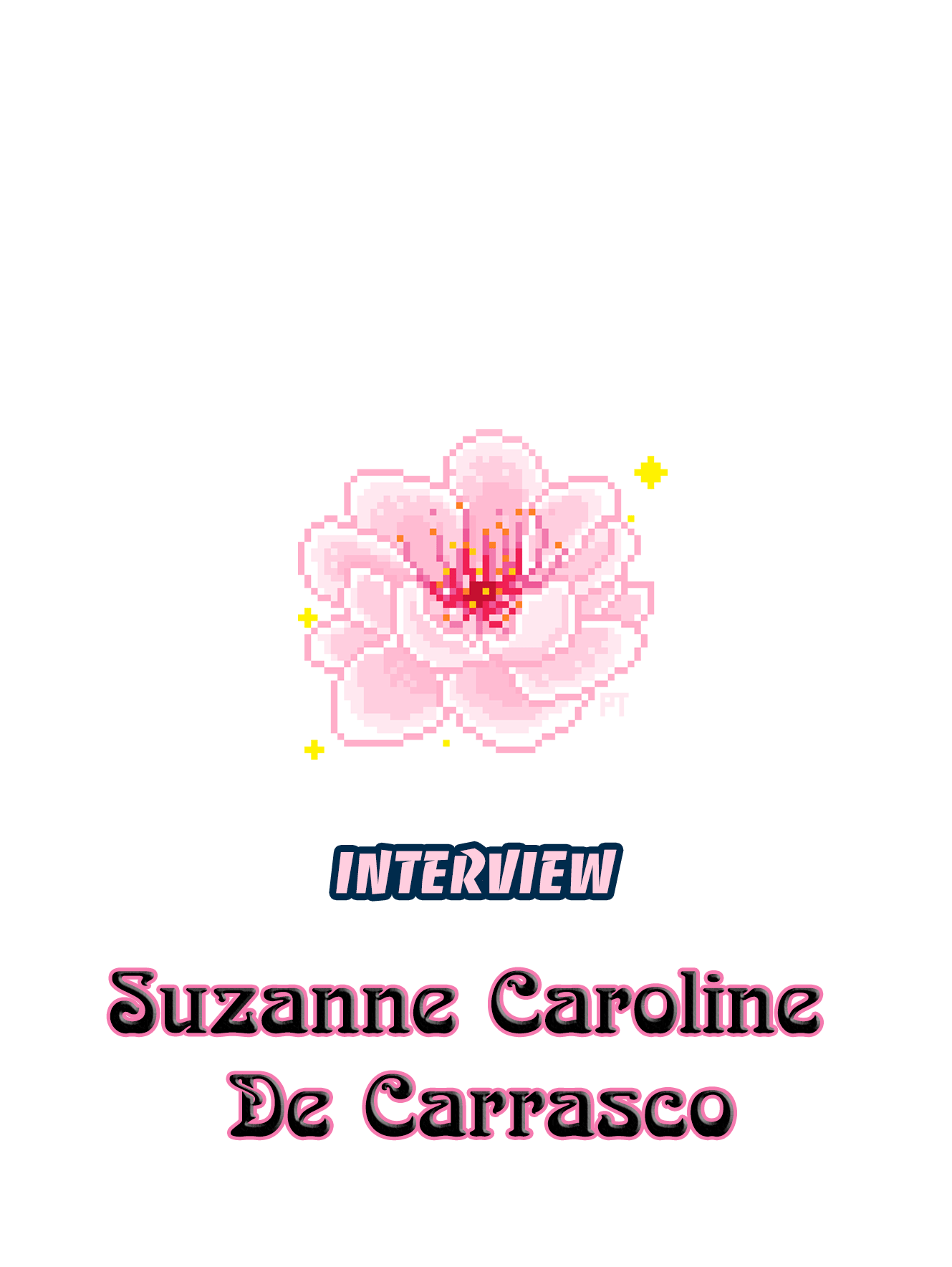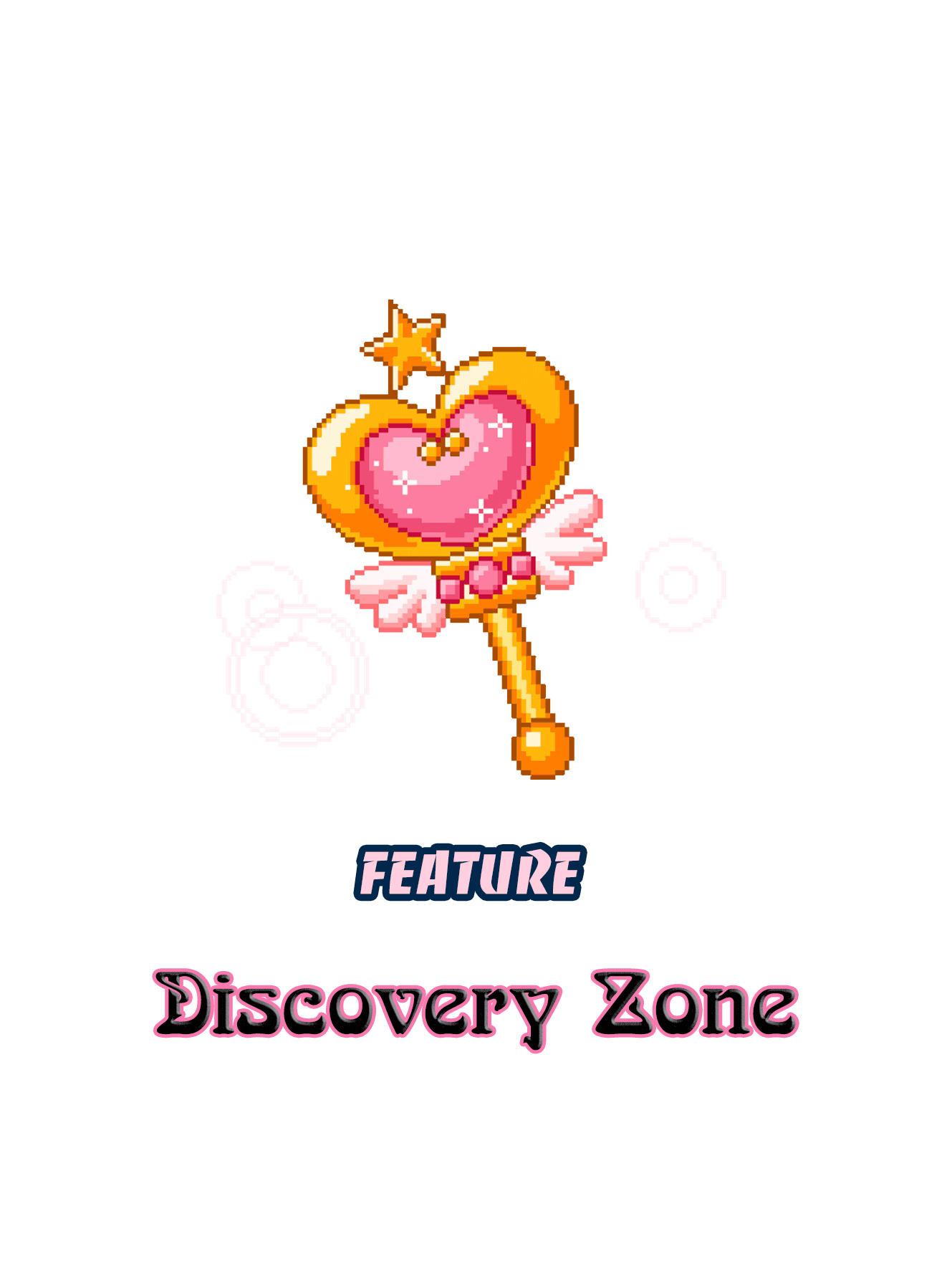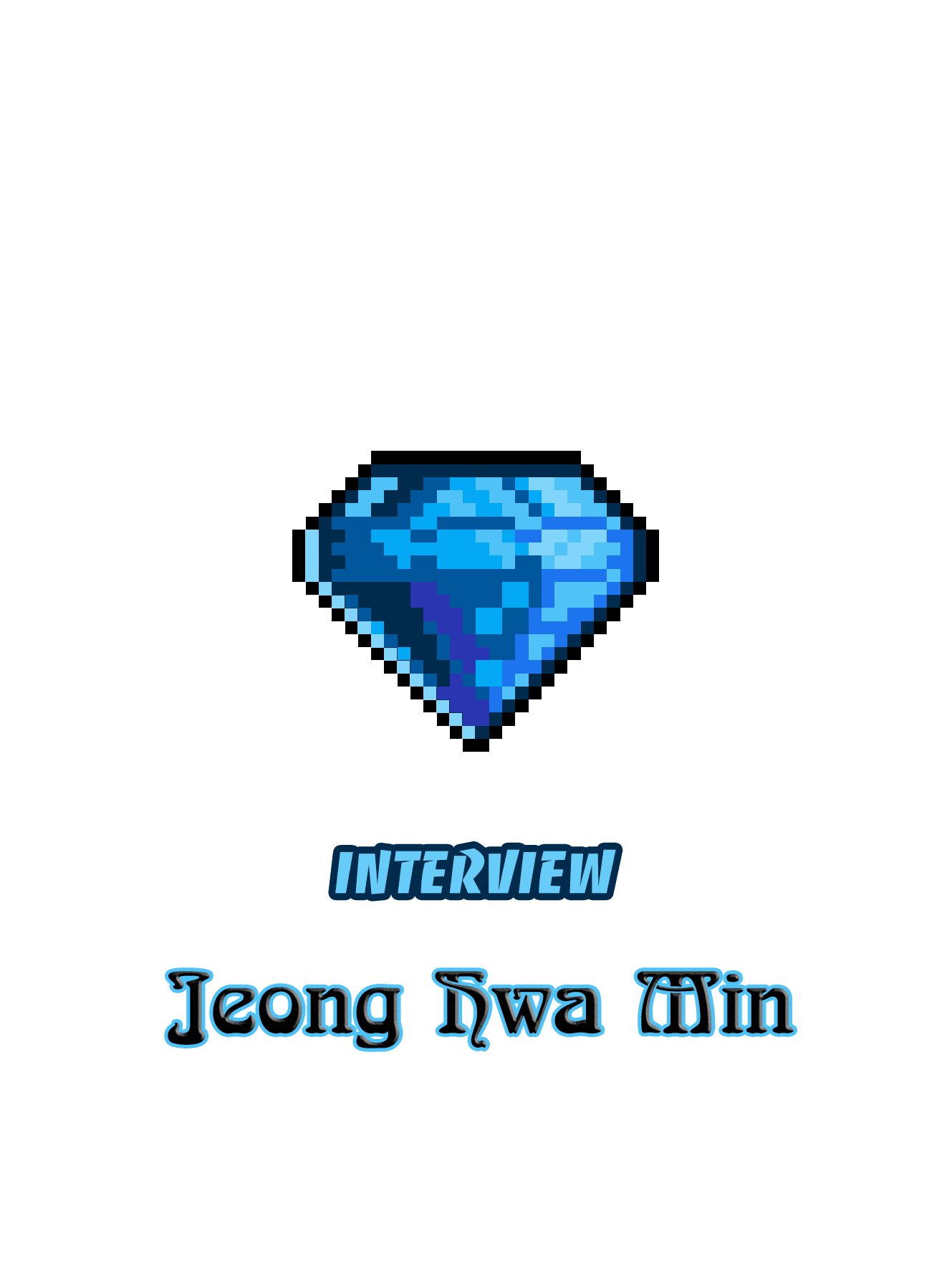It’s the year 2021, a time of gestation, upheaval – a moment to collectively rub our eyes while we ponder, is this real or all just a bad dream? As we found ourselves confined to our abodes, the vast plethora of perils and pitfalls that such an experience brings soon began bubbling to the surface. The less time we had to spend frolicking around town with friends, transmuted into (for better or worse) countless hours scrolling the interweb.
As we began virtually adjusting, we started sending out our own form of sweet bird song, in attempt to connect with fellow seekers of ‘Things that make us go, ahhhh… That make sense, give joy, and help us stay sane’. It was during this quest that we came across, Pura Utz. Created by former health care worker and nurse, Anna Waller Andrés, and her business partner, Bernabela. Pura Utz (which is Spanish for “Pure Quality”) is two women’s dream of making a difference in people’s lives by connecting worlds while serving the women and artisans behind what they do (Anne is from Denmark & Bernabela from Guatemala).
Founded on the core desire to do good and change people’s lives. Anna set out to empower women in Guatemala when she met Bernabela, by making a difference in their lives through creating a project where the women could use the talent and skills that they possess to make a livelihood for themselves.
As we forge ahead, traveling previously untrodden paths, we become more and more aware of our consumer footprints – the environmental and social impacts of fashion and what and who we choose to align ourselves with. The time calls for an end of an era and the beginning of another, where items that are produced that are not meant to last or be appreciated, fall into extinction and are replaced by a value chain that is beneficial to all people involved. Where designers and bands take responsibility for their teams and workers, materials, and the footprint that is left behind their products. Pura Utz paves the way toward goods that hold value and meaning for the people who produced them and the people who wear them. It might take time and readjusting but Anna and Bernabela lead us into a world that we could begin to happily call home.
Hi Anna, tell us a bit about Pura Utz, how it came to be and how it has changed over the years…
I visited Guatemala for the first time when I was a child and then continued to travel there to work when I got older. It was on one of these trips as a volunteer that I came to the realisation that the volunteer work I was doing was probably more for me than for the women involved. All the projects and knowledge that I wanted to share was more my own idealistic need than an actually need the women I worked with had. Once I left for my country, Denmark, I started to learn about women’s rights and what it means to make your own money, open a bank account, owning a piece of land and so on. I realized that all of these fundamental things are necessary before being able to make good decisions in your life, and that the lack of access to these resources brings about problems. So with this new insight, I realized what the women in Guatemala needed most was to make money with their own two hands, which they could freely distribute and use as they want. They are brilliant and resilient entrepreneurs in their own lives and know very well how they wish to invest in their futures. So that was that – I wanted to create a project that would generate money for the women and do good.
I initially started the business by working with individual women and through larger NGOs already operating in Guatemala. All of our designs are based around the talent and skills that the women possess, so first we worked mainly with textiles. This since evolved into beadwork after meeting another NGO working in Santiago, Atitlan. This is also where Bernabela and I first met each other, and decided to join forces and create a business together. Our office is in her house and is run by her and Elisa (her daughter). Now we make all kinds of accessories with beadwork and soon we are launching in textiles again. Our creations are constantly evolving based on what we are able to produce with the talent and materials that we have.
How have you dealt with feelings of ‘imposter syndrome’ as a woman and entrepreneur?
Well, firstly it was about realizing that ‘imposter syndrome’ is a common phenomena that exists – especially among women. I feel like I am an imposter a lot of the time, but particularly when we are having success. There’ll be this inner voice saying things to me like, ‘omg you are an idiot and you think that making a beaded banana will make a difference! Who are you kidding?!’ It’s a terrible voice and I’m not completely sure of where it comes from. Before knowing about the phenomena, I thought it was just my lack of self confidence shining through, but now I think it must be something structural in our society, as well. I don’t think the imposter syndrome is entirely bad though– it’s also good to value check yourself and look at the negative thoughts and emotions you are experiencing. Maybe they have something to say, whether it’s because you actually do have to readjust your value compass a little bit, or because you need to tell it to ‘shut up’ because you woke up that day refreshed and are ready to defy the negative emotions.
What’s the biggest dream that you have for Pura Utz?
My biggest dream is the one I share with my business partner Bernabela: to create and build the most wholesome and beautiful production work place in Guatemala. A place that allows more funnels of work and income for our team, a place that allows financial and mental prosperity through artisan goods. You know that kind of place where its all warm and smells like fresh coffee every morning, all the while you look around lush and colorful surroundings. That’s my dream.
Do you think it is difficult to have a fair business in a capitalistic market?
Yes, I think so. I mean – we can pay the women an amazing salary in Guatemala, but it’s still a really uneven split in the whole value chain. We part-take in an unfair structure by selling to a market that is based on a capitalistic structure where the buying end of the value chain makes the most money. But thinking about this just throws me out of the game completely, it makes me sad and furious at times, completely hopeless. I came into this industry through the back door, I started the business without knowing anything about value chains and product mark ups, if I had of known maybe I would have never done it!
That being said, though, what helps me is to think about what we do and the women in our team – what’s on the plate in front of us. And the women in our team are happy, prosperous and living better lives with their families. So that itself makes so much sense! Even though the whole value chain does not.
You’ve mentioned that you struggled for a long time with the feeling that you couldn’t be ‘too fashion’ because of where the artisan women who work for Pura Utz are based. But that you also couldn’t be ‘too project’ because then it would be more like a charity product. How does what you are trying to achieve with your products differ from other businesses?
Well at the end of the day it’s just a beaded banana, another product… but what makes it special is what it means to the women who made it and the person who will wear it. We make it with so much love and as Elisa says, we really believe it transmits to our designs. But who knows? Maybe people just want a beaded banana and that’s it! We have serious values behind our business but we try to have a lot of fun while doing it, because we have so much fun in our team and this translates into these colorful and fun products.
You’ve spent a lot of your time also working in the public health sector and mentioned that you only recently started paying yourself a wage from Pura Utz. Considering fashion is one of the world’s biggest industries and therefore responsible for a lot of the its environmental problems, what are some steps towards betterment that a fashion business today can make…
I am definitely no expert and I think ‘sustainability in fashion’ is such a super complex topic. You can touch on anything from materials, recycling and people. But if I had to point to one thing – it would be the overproduction and depletion of people and nature that’s the big issue as I see it. There are too many products and garments that are being produced that are not made to last, and are not appreciated thus making them simply ‘empty calories’ for people. We should produce only what is actually being bought and we need to revolutionise the value chain to be beneficial to all people involved. This requires taking responsibility for people, materials and the footprint that is left behind with your product. For us, it’s our accountability and commitment to our little team and what we do and want to create in this world. And maybe tomorrow we learn something new and have to figure out how to integrate or change some of our ways. It’s all just one long journey.
You spent a lot of time in Guatemala as a child, can you tell us about one of your most vivid memories from this time & what brought you and presumably your family there…
My mom was so brave. We lived in the burbs in Denmark and from there she created this exchange programme for young college students where they would study and work in the States, Guatemala, and Germany. She brought us along on those trips, I was around six and the Civil War had just ended in Guatemala. It was a profound experience that created a certain life path for me in general. But what impacted me the most was travelling around the Highlands between volcanoes in old chicken buses and seeing a life that is just so unbelievably different from the one where I lived.
What is the biggest hurdle that you’ve faced trying to connect Copenhagen where you are based with Santiago Atitlan, Guatemala where the production of Pura Utz takes place?
I think it’s an emotional hurdle that I experience almost on the daily – ‘Is what we are doing okay? Are we doing the right thing?’ When I started this business it was based on a realization that I needed to commit to something more than the volunteer work I was doing. Now we are in deep trying to create this business that was not created in order to make a ‘sustainable fashion brand’ but was made to make sense. Now all of a sudden we find ourselves in the fashion world, in the midst of political discussions, sustainability and so on. And the journey continues as we realize and learn every single day about the impact of what we do, the broader picture and the hardcore business – and honestly, it’s not easy knowing if we succeed always with this connection.
I think transparency is key to us. So everything is out in the open and we don’t hide anything from the team in Guatemala either (prices, value chain etc, etc). Whenever there is something going on here in Copenhagen, we celebrate together on Whatsapp calls and vice versa (because Covid means I can’t be there), the tiny team here in Copenhagen knows and communicates with the team in Guatemala. Elisa runs our Instagram from Guatemala and so on. Just trying to keep everything as close knit and as real as possible.
Who do you look up to?
Bernabela (my business partner) without a doubt. We are only a few years apart age wise, but in many ways I often look to her for comfort and advise. She has lived a hard life but is the most happy and positive person – she is strong-willed and believes so much in being authentic and serving your community.
If you had to choose one condiment to reign supreme through the test of time, which one would it be?
Cilantro, obviously! It’s the big thing in Guatemala. Before I used to dislike it so much, it tasted like soap to me. But as I, and my taste buds matured, it is now my favorite thing! It evokes all the good feelings in me. Nothing beats a good tomato salsa with loads of cilantro – we all need more salsa in our lives!
If you could be reborn as a mammal which mammal would you choose?
This was a tough one! I’m thinking of a dolphin just because I feel like they live happily and playfully together!

